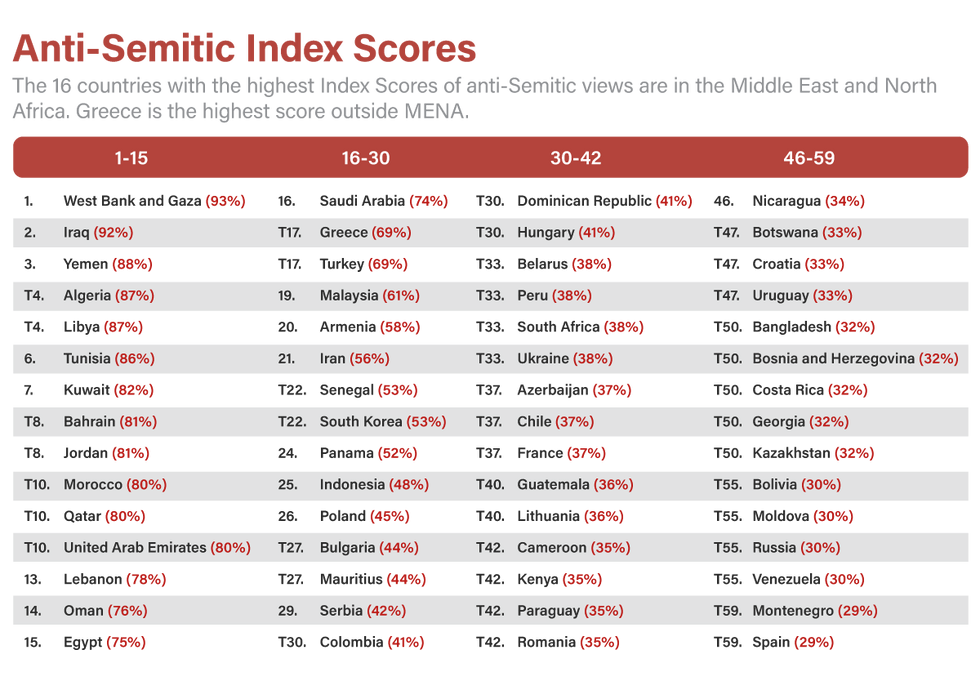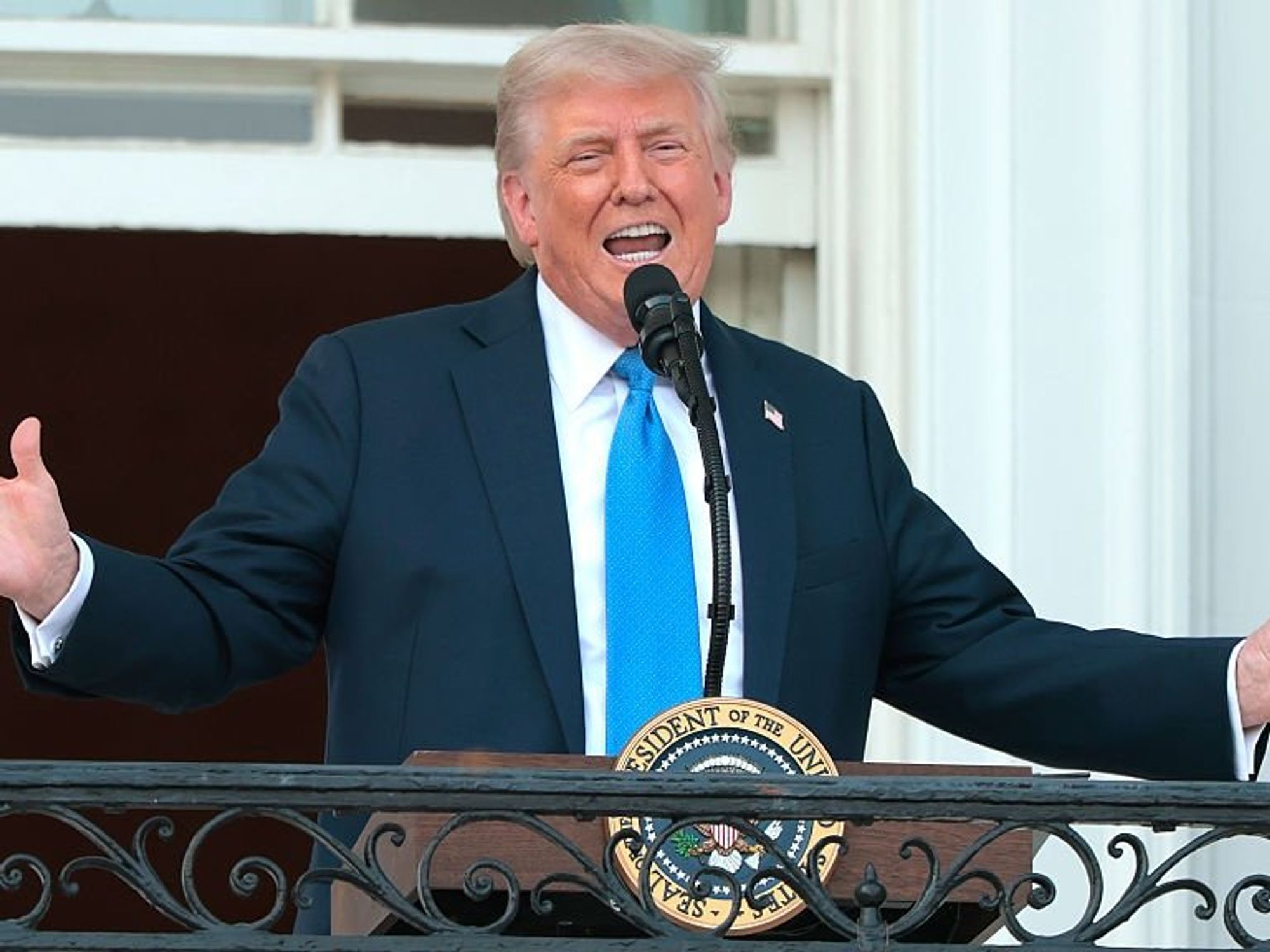“We will not let what happened in Europe happen in America,” President Trump declared Wednesday, unveiling a new travel ban targeting 12 nations — mostly Islamic-majority countries from the Middle East and Africa.
It’s a strong first step toward fulfilling the original 2015 promise of a full moratorium on immigration from regions plagued by jihadist ideology. But let’s not pretend Europe’s crisis stemmed from poor vetting of criminal records. The real problem was mass migration from cultures openly hostile to Western values — especially toward Jews and, by extension, Christians.
The United States ranks near the bottom of the list for anti-Semitism. That’s something worth protecting — not surrendering to appease lobbyists or foreign governments.
And the new list leaves troubling gaps.
Trump’s call for “a total and complete shutdown of Muslims entering the United States” was the defining issue that launched his political movement. Nine years later, the rationale is even stronger — and now, the president has the power to make it happen.
Consider the context: Egyptian national Mohamed Sabry Soliman, the alleged Boulder attacker who shouted he wanted to “end all Zionists,” entered the United States in 2022 with a wife and five children — admitted from Kuwait.
The only question that matters: How many more share Soliman’s views?
The numbers are staggering. By my calculation, the U.S. admitted 1,453,940 immigrants from roughly 43 majority-Muslim countries between 2014 and 2023. That figure doesn’t include over 100,000 student visas, nor the thousands who’ve overstayed tourist visas and vanished into the interior.
Soliman is not an outlier. He’s a warning. And warnings demand a response.
Trump’s January executive order called for a 60-day review by the secretary of state, the attorney general, the Homeland Security secretary, and the director of national intelligence to identify countries with inadequate screening procedures. Four and a half months later — following the Boulder attack — the administration announced bans on nationals from Afghanistan, Myanmar, Chad, Congo, Equatorial Guinea, Eritrea, Haiti, Iran, Libya, Somalia, Sudan, and Yemen.
But Trump didn’t mention anti-American or anti-Jewish sentiment — only logistical concerns like poor criminal record-keeping, high visa overstay rates, and limited government cooperation.
That misses the point entirely.
Jew-hatred — and by extension, hatred of the West — isn't just a byproduct of chaos in failed states like Somalia or Taliban-run Afghanistan. It runs deep across the Middle East, even in countries with functioning governments. In fact, some of the most repressive regimes, like Egypt and Saudi Arabia, are openly hostile to the Muslim Brotherhood, yet still export radicalized individuals.
And those individuals know precisely where to go: America, where radical Islam finds more tolerance than in many Islamic countries.
Good diplomatic relations don’t mean good immigration policy. Pew’s 2010 global attitudes survey showed over 95% of people in many Middle Eastern countries held unfavorable views of Jews — including those in Egypt and Jordan, U.S. allies.
The Anti-Defamation League’s global index confirms it: The highest levels of support for anti-Semitic stereotypes come from the Middle East. According to the ADL, 93% of Palestinians and upwards of 70% to 80% of residents from other Islamic nations agree with tropes about Jews controlling the world’s wars, banks, and governments.

Source: Anti-Defamation League
Meanwhile, the United States ranks near the bottom of the list for anti-Semitism. That’s something worth protecting — not surrendering to appease lobbyists or foreign governments.
So why continue importing hundreds of thousands of people from places where hatred of Jews is considered normal? Why welcome migration from countries like Iraq, Turkey, and Saudi Arabia — where assimilation into American civic values is practically impossible?
The answer may lie in the influence nations like Qatar and Saudi Arabia still exert over U.S. foreign policy. But political cowardice is no excuse for policy paralysis.
Twelve countries on the ban list is a good start. But most don’t reflect the true source of radical Islamic immigration into the United States.
RELATED: Mass deportation or bust: Trump’s one shot to get it right

Photo by Mario Tama/Getty Images
Banning immigration from these regions isn’t about infringing civil liberties. It’s about preventing a civilizational crisis. Unlike Europe, which responded to rising Islamic extremism by criminalizing dissent and speech, America can take the wiser path: protect national security without sacrificing the First Amendment.
We don’t need hate-speech laws. We need sane immigration policy.
Unfortunately, bureaucrats in the administration watered down Trump’s original vision. They framed the bans in terms of “data-sharing” and technocratic concerns. They sought narrow criteria and limited political blowback.
But the law is clear. Trump v. Hawaii affirmed the president’s broad constitutional authority to exclude foreign nationals.
That authority exists for a reason.
President Trump rose to power by sounding the alarm about what unchecked migration could do to the West. That warning was prophetic. And now, he has the mandate — and the obligation — to act on it.
Twelve countries won’t cut it. The question now isn’t whether Trump will act — it’s whether he’ll act in time.
Because if we want to avoid Europe’s fate, we don’t just need a new policy. We need the old Trump — unapologetic, unflinching, and unafraid to speak hard truths.
Let’s hope he finishes what he started.
The post <a href=https://www.theblaze.com/columns/opinion/12-countries-wont-cut-it-why-trumps-travel-ban-ultimately-falls-short target=_blank >12 countries won’t cut it: Why Trump’s travel ban ultimately falls short</a> appeared first on Conservative Angle | Conservative Angle - Conservative News Clearing House
Continue reading...

